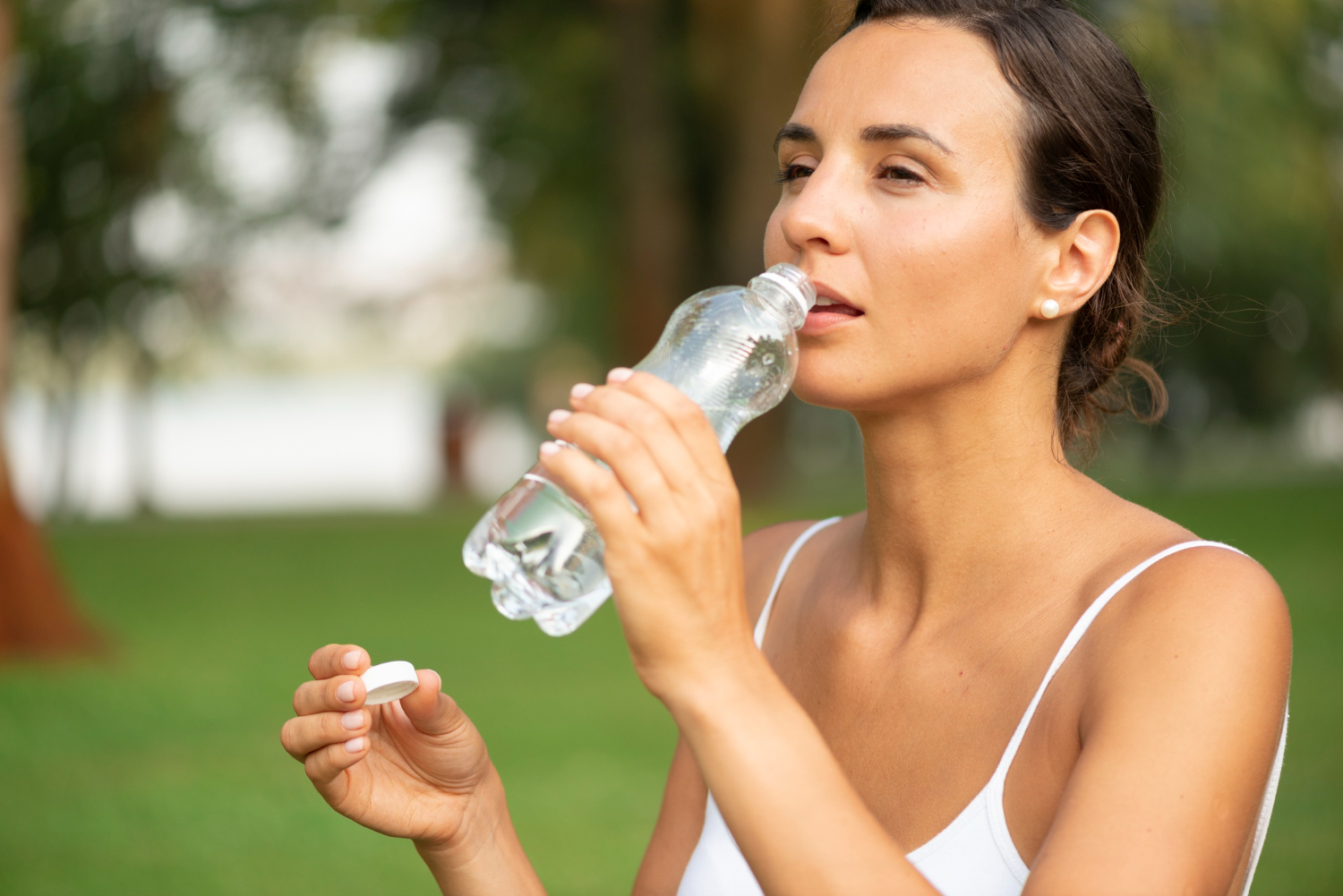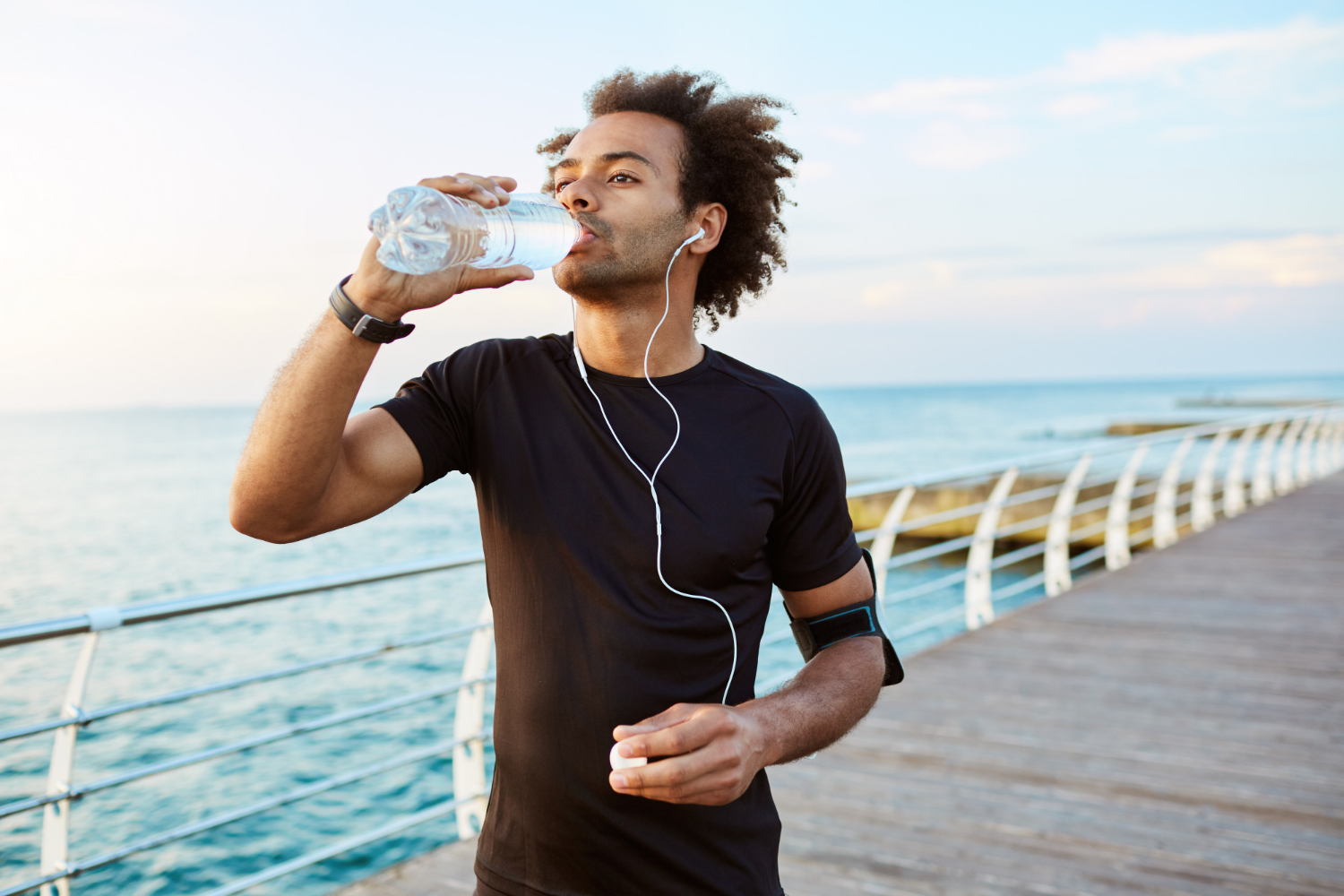Weight loss requires a multi-step approach. Often we focus on diet and physical activity, forgetting one of the fundamental, and simplest, elements supporting this goal - adequate hydration. Although water in itself is not a magic elixir for weight loss, its regular and sufficient intake plays a key, multi-faceted role in weight management and supporting weight loss. It is calorie-free, essential to life and, as it turns out, can be a valuable ally in the fight for a healthy figure. How does drinking water affect weight loss? Let's take a look at the key mechanisms.
Effects of Water on Metabolism and Weight Loss
One of the most discussed aspects is the effect of water on metabolic rate and energy expenditure of the body.
Water-Induced Thermogenesis.
The human body strives to maintain a constant internal temperature. When we consume water, especially water that is cooler than our body temperature, the body must consume energy (burn calories) to warm it up. This phenomenon is called water-induced thermogenesis. Scientific studies have confirmed the existence of this effect, although its scale is not huge.
It is estimated that drinking about 500 ml of water can increase metabolic rate by about 24-30% for up to 60 minutes. Although the single effect is relatively small, drinking water regularly throughout the day can lead to a cumulative, slight increase in total daily energy expenditure. In the context of long-term weight loss, even a small increase in calories burned each day makes a difference. More describes research.

The Role of Water in Metabolic Processes.
Water is the environment in which most of the chemical reactions in our bodies take place, including the key metabolic processes involved in energy conversion. It is essential for proper functioning:
- Lipolysis: The process of breaking down stored fat into fatty acids, which can then be used as a source of energy. Dehydration can slow down this process.
- Carbohydrate metabolism: Water participates in the digestion and utilization of carbohydrates.
- Nutrient transport: Water is the main component of blood, which transports oxygen and nutrients to cells, including muscles during exercise.
- Removal of metabolic products: Adequate hydration is key to effective removal of unnecessary metabolic products.
Even mild dehydration can lead to a slower metabolic rate and make it more difficult to burn calories and fat efficiently.
Increase Cell Volume (Cell Volumization).
Proper hydration helps maintain adequate cell volume. Cellular hydration status is an important metabolic signal. Some studies suggest that well-hydrated cells may be more prone to anabolic (building) and less catabolic (breaking down) processes, which may indirectly support the maintenance of muscle mass during weight loss - and as we know, muscle is key to maintaining a high metabolic rate.
Water and Diet and Weight Loss
Adequate water intake can be an effective tool in managing appetite and reducing the total number of calories consumed.
Reducing Feelings of Hunger
The hunger and thirst centers in the brain (in the hypothalamus) are linked. Sometimes signals indicating mild dehydration can be misinterpreted as feelings of hunger. Reaching for a glass of water at the onset of mild hunger or the urge to snack may be enough to satisfy this need, helping to avoid consuming unnecessary calories.
Filling the Stomach Before Meals
Drinking water, especially before meals, can physically fill the stomach, leading to a quicker feeling of satiety and consequently consuming a smaller portion of food. Numerous studies support this strategy. It has been shown that people who drank about 500 ml of water 30 minutes before major meals consumed fewer calories and achieved better weight loss compared to control groups.
Weight Loss is Replacing Caloric Drinks
One of the easiest and most effective ways to reduce daily calorie intake is to replace sugary, caloric drinks (such as fruit juices, sodas, sweetened teas, coffees with additives, energy drinks) with plain water. A glass of sweetened beverage can contain tens to even more than 150 kcal (mostly from sugar). Choosing water provides the body with essential fluid without additional "empty" calories, making it significantly easier to maintain the caloric deficit needed for weight loss.

Water and Performance in Training
Physical activity is an integral part of successful weight loss. Adequate hydration is absolutely key to maintaining high performance during workouts.
Hydration Key to Training Effectiveness
Dehydration, even at a level of 1-2% of body weight, can significantly reduce physical performance. It leads to:
- Reductions in muscle strength and power.
- Reductions in strength.
- Deterioration of motor coordination.
- Faster fatigue.
- Increases in perceived exertion at the same intensity.
As a result, your workout becomes less effective, more difficult to perform, and as a result, you burn fewer calories and get poorer results. Taking care of hydration before, during and after training allows you to exercise longer, more intensely and more efficiently.
Reducing the Risk of Cramps and Fatigue
Water plays a key role in regulating body temperature (through sweating) and transporting electrolytes necessary for proper muscle function. Dehydration increases the risk of overheating, painful muscle cramps and intensifies the feeling of fatigue, which can end training prematurely.
Post Workout Regeneration Support
After exercise, the body needs nutrients to repair muscle micro-damage and replenish energy stores. Water is essential for transporting these components (amino acids, glucose) to muscle cells. It also enables efficient removal of metabolic products accumulated during exercise (such as lactic acid). Adequate hydration after training speeds up the recovery process.
Water and the Body's Cleansing Processes
Water has a fundamental function in the body's natural detoxification processes.
Supporting Kidney Function
The kidneys are the main organ that filters the blood and removes unnecessary and potentially toxic metabolic products from the body. In order for them to work efficiently, they need enough water to produce urine, with which these substances are excreted. During weight loss, when fat is broken down, byproducts of this process are produced (such as ketone bodies on a low-carbohydrate diet), which also need to be removed by the kidneys. Sufficient water intake facilitates this process and relieves the burden on the kidneys.
Preventing Constipation
Dietary changes made during weight loss (such as increasing protein or fiber intake) can sometimes lead to constipation if not accompanied by adequate fluid intake. Water helps form normal fecal matter and facilitates its movement through the intestines, ensuring regular bowel movements.
Weight loss - How Much Water to Drink?
Knowing the importance of hydration, it is worth considering how much water we need and how to effectively increase our water intake.
General Recommendations for Water Consumption.
Individual water requirements are variable and depend on a number of factors, such as age, gender, body weight, level of physical activity, ambient temperature and humidity, and health. It is generally accepted that an adult should consume on average:
- About 2 liters of fluids per day for women.
- About 2.5 liters of fluids per day for men.
These are indicative values, including water also contained in food (fruits, vegetables, soups). During weight loss and regular training, this demand increases. The best indicator is to listen to your own body's signals (feeling thirsty) and observe the color of your urine - a light, straw color usually indicates good hydration.
Weight loss and Practical Ways to Increase Water Intake
- Have water with you at all times: Carry a reusable bottle with you and refill it regularly.
- Set reminders: If you forget to drink, set reminders on your phone or app.
- Drink water with and between meals: Develop the habit of drinking a glass of water before every meal and reaching for it regularly throughout the day.
- Add flavor (naturally): If you don't like the taste of plain water, add lemon slices, lime, cucumber, mint leaves or berries to it. Avoid ready-made flavored waters, which often contain sugar or sweeteners.
- Eat foods rich in water: Include more fruits and vegetables with high water content in your diet, such as watermelon, strawberries, cucumber, celery, oranges.
- Monitor urine color: Check urine color regularly to assess hydration status.
Summary: Weight loss needs water
Drinking adequate amounts of water is a fundamental part of a healthy lifestyle, and has been shown to significantly support weight loss. Although it is not a stand-alone solution to guarantee weight loss, water works on many levels: it can slightly speed up metabolism, increase feelings of satiety and help control appetite, replace caloric beverages, improve the physical capacity needed to burn calories, and support the body's natural cleansing processes.


